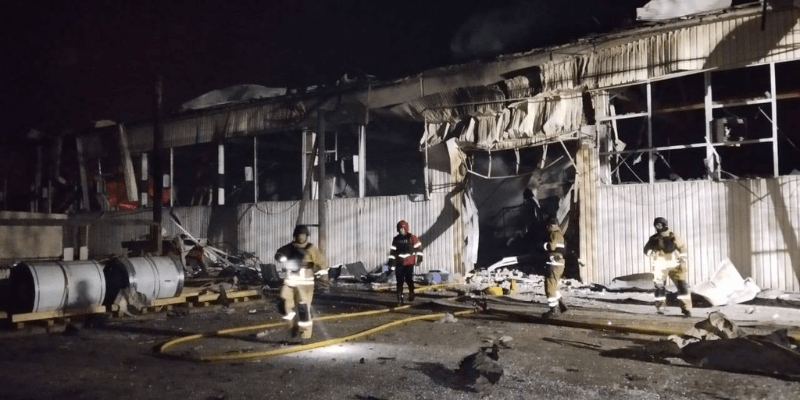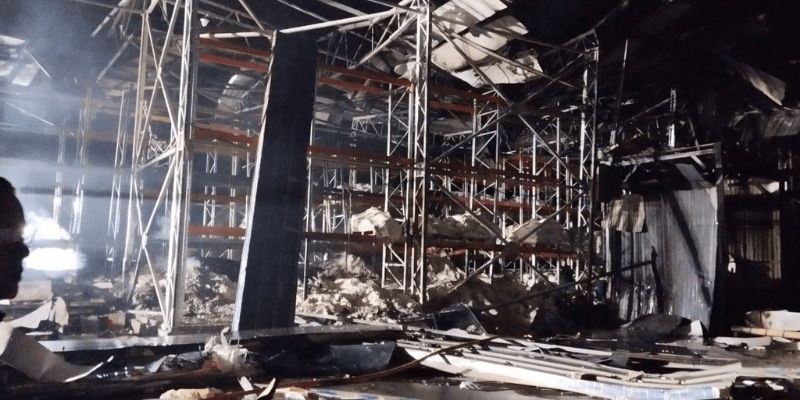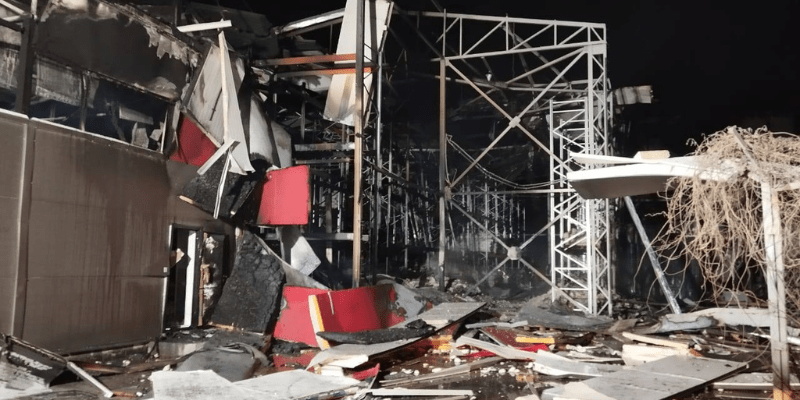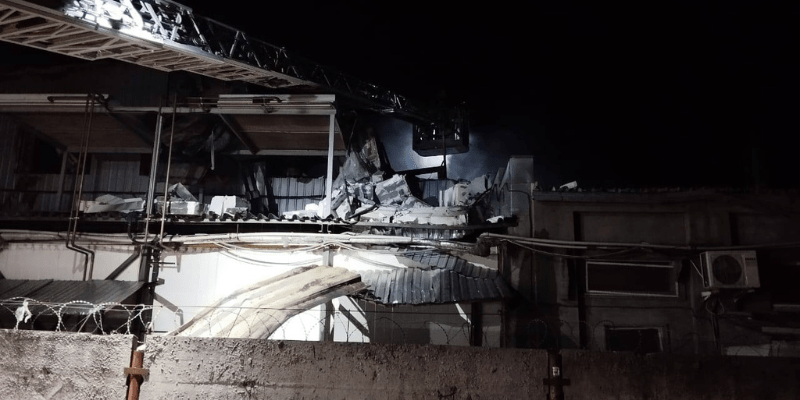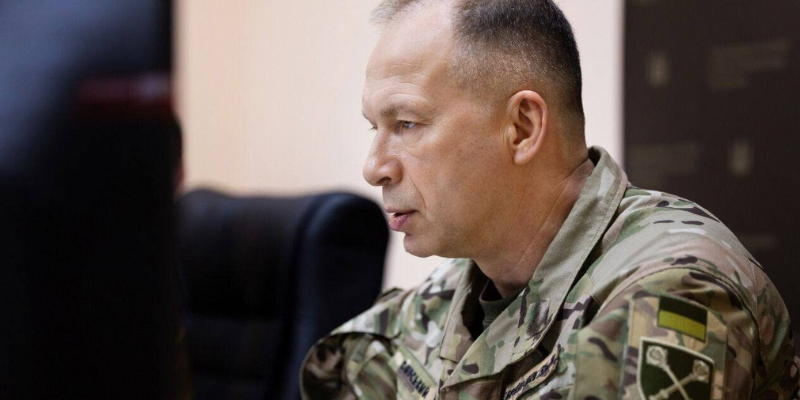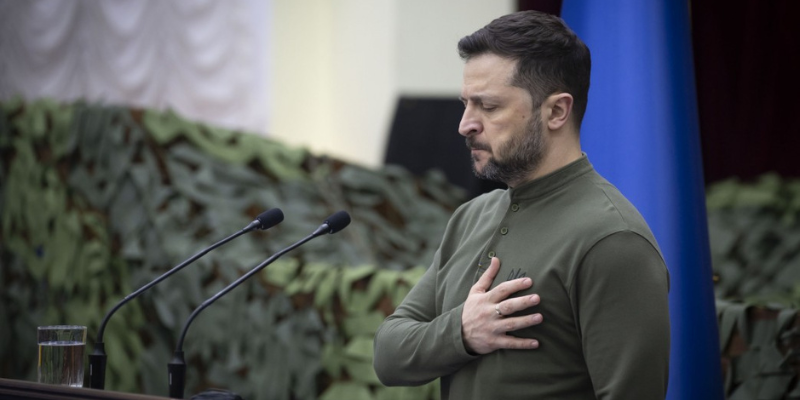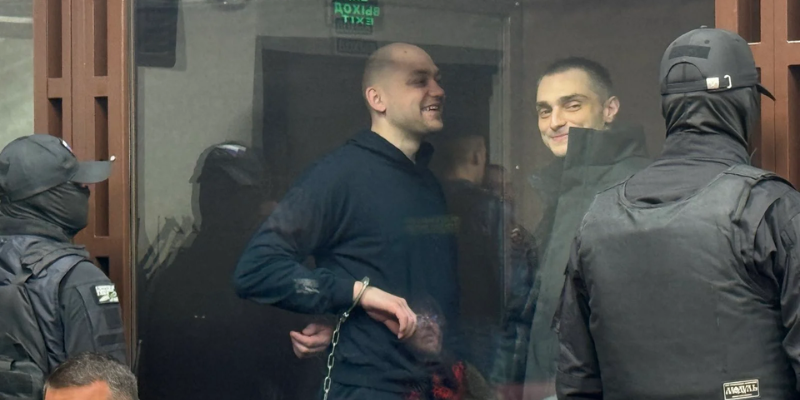General Staff: Ukrainian forces focus on Russian military sites, not energy infrastructure
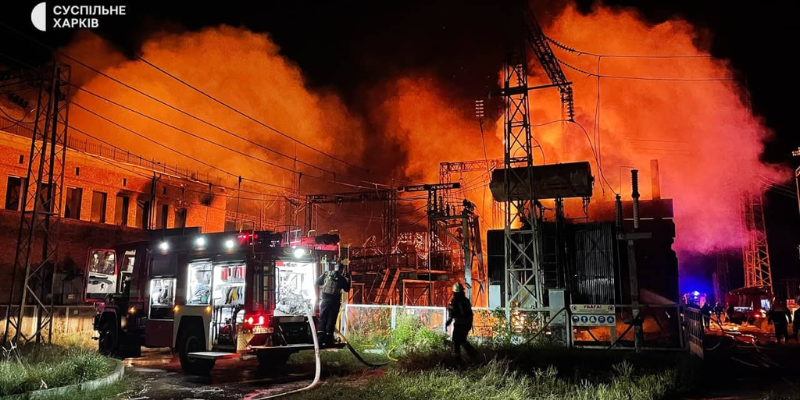
Ukraine’s Defense Forces strictly adhere to an indirect agreement with Russia that was brokered by Washington to refrain from striking energy infrastructure in Russia, while Moscow continues to violate these agreements and spread disinformation, the General Staff of the Armed Forces of Ukraine has said.
A 30-day moratorium on targeting energy facilities was a fragile-looking agreement as brokered by Washington on March 18, but Kyiv officials have said that Russia has targeted Ukrainian energy sites eight times since the beginning of the month, including after the vague agreement that lacked specific details.
Ukrainian energy facilities were struck overnight on March 27-28 in the southern city of Kherson and centrally located city of Poltava, regional officials stated.
Ukraine’s military emphasized that Russian defence authorities are “producing fakes” about alleged Ukrainian strikes on energy facilities within Russia and in occupied territories. In contrast, Ukraine’s Defence Forces conduct precision strikes exclusively against military targets of the Russian occupying forces.
The General Staff stressed that these disinformation efforts aim to discredit Ukraine and its diplomatic efforts, while Russia continues to rely on its strategy of prolonging the war.
A military source confirmed that Ukraine had paused deep strikes into Russian territory for two days but resumed drone attacks on March 28 in response to Russia’s failure to uphold its end of the agreement. Even so, Ukraine continues to avoid hitting Russia’s energy infrastructure.
Earlier, the Russian Defense Ministry accused Ukraine of violating the so-called “energy ceasefire” by targeting facilities in Kursk and Saratov oblasts—claims denied by Kyiv. Meanwhile, Russia has consistently carried out attacks on Ukraine’s energy sector, despite claiming otherwise.
Kremlin presidential spokesman Dmitry Peskov said on March 28 that Russia reserves the right to break the moratorium if Kyiv does so first. He also accused Ukraine of still targeting energy facilities within Russia – claims that Kyiv, asserting instead that Kremlin forces are attacking their own sites in an attempt to discredit Ukraine.
Ukrainian government officials said on March 28 that Russia last attacked Ukraine’s energy infrastructure on March 25, meaning that the actual moratorium lasted three days until Russia violated the agreement.
All other attacks on Russian soil where energy sites are situated, are conducted by Russia, Kyiv officials insist.
SOURCESymbolic number of the Day
Ukraine repatriates remains of 909 fallen defenders. Ukraine has recovered and repatriated the remains of 909 killed soldiers, authorities said on March 28. The bodies were returned as part of ongoing repatriation efforts, according to the Coordination Headquarters for the Treatment of Prisoners of War. The remains include those killed in fighting near Kurakhove, Pokrovsk, Bakhmut, Vuhledar, Luhansk and Zaporizhzhia, as well as bodies transferred from morgues in Russia.
The transfer was conducted in accordance with the Geneva Conventions, officials said. Ukraine’s armed forces will deliver the remains to designated state institutions, where law enforcement and forensic experts will work to identify and examine them.
SOURCEWar in Pictures
Russian drone strike sparks large fire in Ukraine’s Poltava region. A Russian drone strike targeting industrial sites and an energy facility in Ukraine’s central Poltava region ignited fires that spread across roughly 2,500 square meters (26,900 square feet), local officials said March 28.
Several drones hit civilian infrastructure in the city of Poltava, according to Volodymyr Kohut, head of the regional military administration. Air defense systems intercepted part of the attack, but multiple sites were struck.
The blasts damaged warehouses, an administrative building and a transformer used to voltage signals at one of the facilities across six different locations. Fires erupted as a result of the strikes and falling debris.
Emergency crews fully extinguished the blazes by 4 a.m., authorities said. No injuries were reported. The response involved 19 fire engines and around 90 first responders.
SOURCEVideo of the Day
SBU military counterintelligence turns Russian equipment and positions into scorched ruins. Ukraine’s military counterintelligence units have inflicted significant damage on Russian forces in recent months using strike drones and other precision firepower, the country’s Security Service (SBU) said on March 28.
According to the SBU, operatives from its Military Counterintelligence Department have destroyed or disabled the following Russian targets:
- 95 units of armored vehicles and artillery
- 6 radar stations
- 4 electronic warfare systems
- 65 reconnaissance and combat drones
- 5 enemy drone operator teams, 4 control points, and 9 first-person view antennas
- 48 vehicles and specialised military equipment
- 225 enemy positions and personnel concentrations
- 11 ammunition and gear depots
- 18 communication and surveillance systems
Ukraine’s main counterintelligence agency emphasised that operations targeting Russian forces and equipment continue across multiple sectors of the front.
SOURCEInstitute for the Study of War (ISW) report

Key Takeaways:
- Ukrainian President Volodymyr Zelenskyy reiterated on March 26 that discussions are ongoing about the details of the temporary ceasefire agreements on energy infrastructure strikes and maritime operations in the Black Sea.
- Russia continues to strike Ukrainian critical and civilian infrastructure under the cover of the ceasefire on energy infrastructure strikes — which is not in line with U.S. President Donald Trump’s goal of using the temporary ceasefire to facilitate a lasting peace in Ukraine.
- The Ukrainian General Staff reported that the March 19 to 20 Ukrainian drone strike against Russia’s Engels Airbase destroyed a large number of cruise missiles and strategic fuel reserves as Ukrainian officials reported that Russia is prioritizing the production of high-precision missiles.
- Ukrainian President Volodymyr Zelenskyy warned that Russia is preparing for a spring offensive in Sumy and Kharkiv oblasts.
- Ukraine’s European allies met in Paris for a “Coalition of the Willing” summit on March 27 to discuss their ongoing support for Ukraine, a monitoring system to ensure ceasefire compliance, and the possible deployment of a “deterrent force” in Ukraine.
- Ukrainian forces recently advanced near Borova, Toretsk, Pokrovsk, and Kurakhove. Russian forces recently advanced in Kursk and Sumy oblasts; near Lyman, Toretsk, and Pokrovsk; and in western Zaporizhia Oblast.
- The Volunteer Society for Assistance to the Army, Aviation, and Navy of Russia (DOSAAF), which promotes patriotic and military education and has been involved in Russian volunteer recruitment efforts, elected Denis Dobraykov as the new DOSAAF Chairperson on March 27.
War heroes
Sgt. Ihor Poturaiev, call sign Safari, killed in action during evacuation in Luhansk region. Sgt. Ihor Poturaiev, known by the call sign Safari, was killed on Oct. 10 near the village of Makiivka in Luhansk region while being evacuated. The enemy dropped an explosive from a drone. A day earlier, he had been seriously wounded during a combat mission. He was 34 years old.
Born in Kryvyi Rih, Dnipropetrovsk region, Poturaiev graduated from the Kryvyi Rih National University of Mining with a degree in electromechanical engineering. In civilian life, he worked as an electrician at the Kozatska mine of the Kryvyi Rih Iron Ore Plant. He completed his mandatory military service in 2011–2012, earning the rank of junior sergeant, before returning to work at the mine. He enjoyed sports and dedicated his free time to it.
On August 16, 2022, Poturaiev was mobilized into the Armed Forces of Ukraine and was assigned to the 17th Tank Brigade. He was wounded near Bakhmut and returned to service after recovery. In January 2024, he transferred to the 3rd Assault Brigade. After training, he joined the 2nd Assault Battalion and fought near Avdiivka in the Donetsk region. In June, he completed additional training, received the rank of sergeant, and became a squad leader in the FROST platoon. He served in the Donetsk, Luhansk, and Kharkiv regions.
For his service, he was awarded the “Veteran of War – Combatant” badge, the “For Service and Valor” (3rd class), and the “Iron Cross” (3rd class).
“Ihoryok was kind, joyful, and sincere. For me and his brother, he was—and always will be—the most loving and dearest person. I’m proud of my son, and his comrades respected him. He dreamed of continuing his military career after the war,” said his mother, Liudmyla.
“Safari was an excellent commander, always leading by example. He was a strong teacher, understood his team well, and never gave up,” added his comrade Oleh.
Poturaiev was laid to rest in his hometown at the Central Cemetery in the honorary burial section. He is survived by his mother and brother.
*Ihor`s story on the Heroes Memorial – a platform for stories about the fallen defenders of Ukraine.
SOURCELatest news
- US to provide short-term funding for Yale University’s program tracking abducted Ukrainian children
- Sweden to provide over 7 million euros for drone and mine clearance coalitions for Ukraine
- NYT: European leaders promise support for Ukraine, but have no unanimity on sending troops
- Denmark commits 40 million euros to boost Ukraine’s wartime innovations
- Rubio says it’s too early for high-level talks between Russia and the US
- Companies from South Korea are preparing to resume business in Russia
- Russian strikes hit Naftogaz facilities, disrupting gas production in Ukraine
